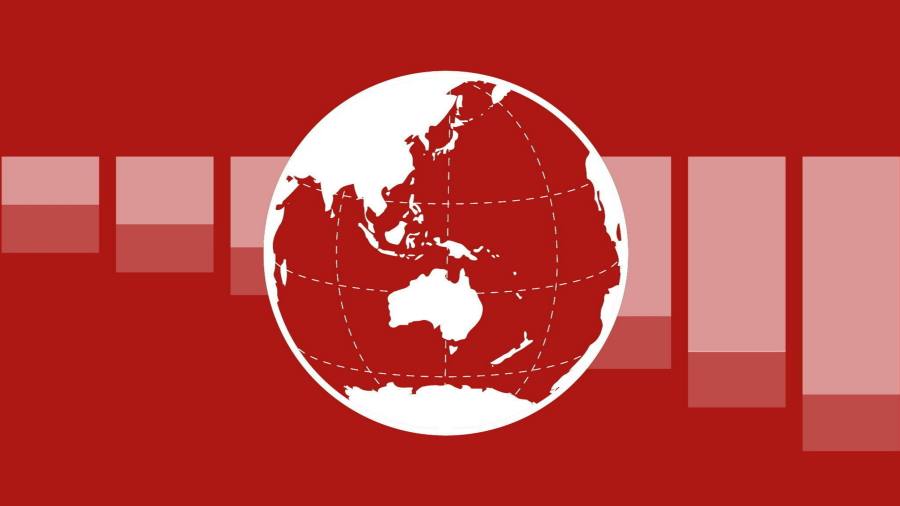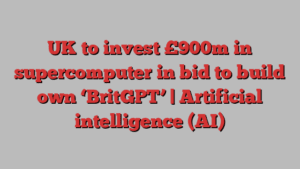
European bank stocks rallied on Thursday after Credit Suisse was offered liquidity financing by the Swiss National Bank, sparking a rebound in the bank’s shares.
The recovery in the banking sector fuelled a broader rise across European indices ahead of the European Central Bank’s monetary policy meeting.
Credit Suisse shares jumped 30 per cent at the open, after sinking 24 per cent on Wednesday. The Stoxx 600 banks index was 3 per cent higher, with lenders Société Générale and Deutsche Bank, which fell heavily in the previous session, rising 4 per cent.
The region wide Stoxx 600 rose 1.3 per cent, while Germany’s Dax index and France’s Cac 40 climbed 1.7 per cent. The UK’s FTSE 100 gained 1.5 per cent.
Yields on 10-year German Bunds, which on Wednesday saw their biggest single-day drop since 1990, rose 0.11 percentage points to 2.22 per cent, while two-year notes gained 0.17 percentage points to 2.55 per cent.
The rebound for Credit Suisse came after the bank announced it would have access to a SFr50bn ($54bn) liquidity backstop and buy back about $3bn of its debt. The bank’s shares had tumbled on Wednesday after the chair of Saudi National Bank, a major Credit Suisse shareholder, ruled out any further investment, triggering turmoil in the global banking sector.
The sell-off was also prompted by the collapse of Silicon Valley Bank, which triggered a wave of concern over the bond portfolios of banking institutions and speculation that the big central banks would be forced to rethink their aggressive interest rate rising agendas. Investors are uncertain as to whether the ECB will raise borrowing costs by a quarter or a half percentage point later on Thursday.
“[It] looks as though a meaningful increase in market volatility has led investors to doubt the ability of the ECB and Bank of England to raise rates much further,” said Daniel Vaun, credit trading director at HSBC. “Given the recent solid data on activity and wages, we still expect both banks to press ahead with rate hikes in March. However, financial stability considerations reinforced our view that the end of the tightening cycle could be close.”
Asian equities fell on Thursday morning, although analysts at Deutsche Bank said the continent was “avoiding the larger scale declines witnessed in Europe and the US,” after the banking crisis.
Japan’s Topix shed 1.2 per cent, South Korea’s Kospi lost 0.1 per cent and Australia’s S&P/ASX 200 fell 1.5 per cent. Hong Kong’s Hang Seng and China’s CSI 300 dropped 1.7 per cent and 1.2 per cent, respectively.
Shares of Japanese banks resumed a sell-off, with the Topix Banks index down 3.3 per cent. Regional lenders Tochigi Bank and Keiyo Bank were hit the hardest, losing 4 per cent and 3.7 per cent, respectively.
Futures contracts tracking the blue-chip S&P 500 and Nasdaq Composite rose 0.1 and 0.3 per cent respectively. On Wednesday, the S&P 500 closed down 0.7 per cent, while the Nasdaq Composite finished flat. JPMorgan Chase, the world’s largest bank by assets, fell 4.7 per cent, while Morgan Stanley and Citibank both lost more than 5 per cent. The KBW Nasdaq Bank index closed 3.6 per cent lower.
San Francisco-based First Republic Bank, which has been hit hardest by the fallout from SVB’s collapse, lost 21.4 per cent.
The yield on two-year US Treasury notes, which is closely linked to interest rate expectations, fell 0.02 percentage points to 3.95 per cent. The yield on the 10-year note was flat at 3.5 per cent. Yields move inversely to prices.
In currency markets, the dollar index, which measures the greenback against a basket of six peer currencies fell 0.4 per cent. The Euro rose 0.4 per cent against the dollar, and sterling gained 0.2 per cent after the spring budget in which chancellor Jeremy Hunt extended energy bill support and the Office for Budget Responsibility predicted the UK would avoid a technical recession.
Brent crude and WTI, the US equivalent, rose 1 per cent, after collapsing to $73.69 and $67.61 a barrel respectively on Wednesday, their lowest level since December 2021.

